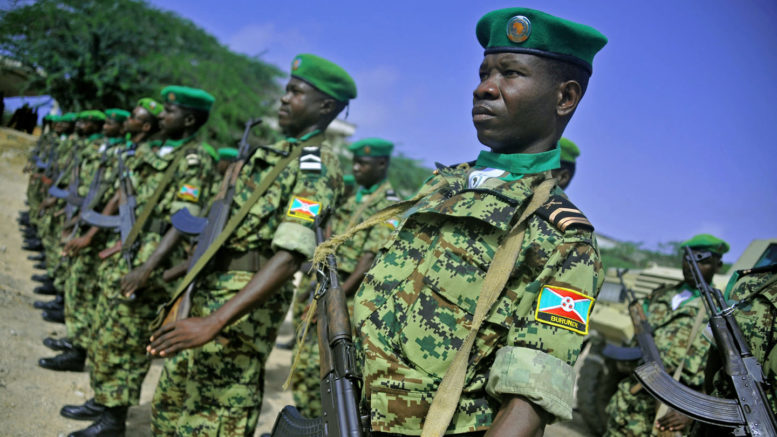MOGADISHU, Somalia — International human rights organizations have documented pervasive incidents of sexual exploitation, rape and abuse by members of the African Union Mission in Somalia (ATMIS), with a significant number of cases involving Burundian forces stationed in Mogadishu. These abuses, which include rape and the exploitation of young girls and children, are said to constitute war crimes and crimes against humanity.
According to detailed reports, the exploitation has persisted for years, with hundreds of Somali young women and girls subjected to sexual abuse by African Union forces. The scale of this exploitation is staggering, with thousands of children reportedly born annually as a result of these abuses.
Many of these victims are from the Hawiye tribe, ATMIS is not the only one who rapes Hawiye girls but earlier this year condoms were found in liberated area from Al Shabaab miltants.
The reports highlight that many of these abuses occur at African Union forces’ bases, where young Somali girls and children are forced to trade sexual favors for essential supplies such as water, medicine, and food. The dire living conditions in Somalia—marked by prolonged droughts, civil conflict, rampant unemployment, and the oppressive rule of Al-Shabaab terrorists—have driven many to this desperate measure.
The findings reveal a grim reality where hundreds of young women and children visit these bases nightly, coerced into sexual exploitation due to their families’ urgent need for basic necessities. The situation is further exacerbated by Somalia’s severe economic challenges, with unemployment rates soaring to 95% and ongoing environmental crises caused by global climate change.
Human rights advocates call for immediate and decisive action to address these violations. The international community is urged to hold ATMIS accountable for the crimes committed by its forces and to provide support for the victims of these atrocities.
The AU mission in Somalia, which was initially established to support the country’s fragile peace process and combat extremist groups like Al-Shabaab, now faces a serious reputational crisis. The documented abuses have cast a long shadow over its operations, raising critical questions about the oversight and accountability of peacekeeping forces in conflict zones.
In response to these allegations, it is imperative that thorough investigations be conducted, perpetrators be brought to justice, and comprehensive measures be implemented to prevent further abuses. The protection of vulnerable populations in conflict areas must be prioritized, ensuring that peacekeeping missions do not become sources of further suffering.
The ongoing humanitarian crisis in Somalia calls for a concerted international effort to provide relief and support sustainable development, helping to alleviate the conditions that drive such exploitation. The plight of Somali women and children underscores the urgent need for systemic change to address both the immediate and long-term challenges facing the nation.
For many Somali women and children, the daily struggle for survival continues amidst unrest Civil War. The revelations of abuse by those meant to protect them serve as a stark reminder of the complexities and unintended consequences of international intervention in fragile states.
As the world grapples with these revelations, the focus must remain on justice for the victims and ensuring that such violations are never repeated.
[Jibril Qoobeey] Idil News journalist
Discover more from Idil News
Subscribe to get the latest posts sent to your email.






